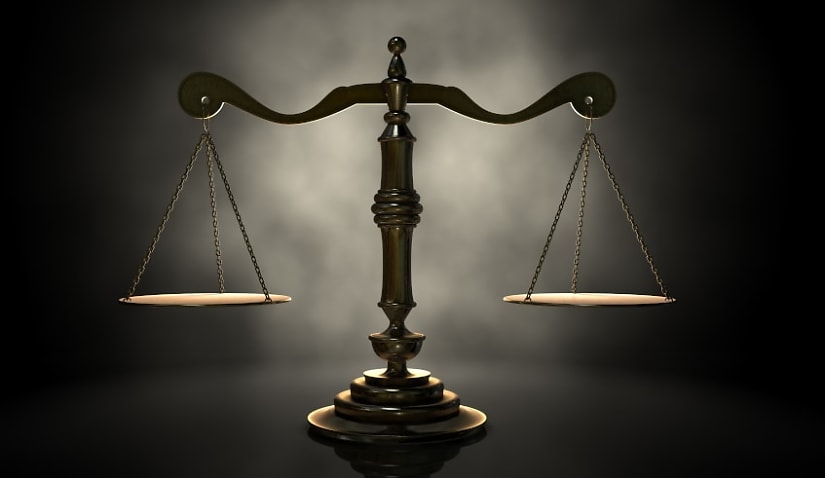The Australian government has been called on to lower the pension age for First Nations Australians following a legal challenge being brought against it for alleged discrimination.

A legal claim against the Australian government seeking fair and equal access to the age pension for Aboriginal and Torres Strait Islander people has recently been heard by the Full Federal Court next week.
This comes after the government admitted that the gap is not closing fast enough and committed millions in additional funding towards various Closing the Gap initiatives.
Proud Waka Waka man Uncle Dennis brought the case, which the federal government has faced court for the first time in connection with its failure to close the gap in life expectancy between Aboriginal and Torres Strait Islander people and non-Indigenous people. Uncle Dennis is bringing this case with the Victorian Aboriginal Legal Service and the Human Rights Law Centre, with support from DLA Piper.
“I’ve seen too many of my people dying at a very early age. We are lucky to get to 50 years old. White people are living longer because they haven’t lost what we have lost. This is about acknowledging what happened here. So many things that Aboriginal people are suffering from today, are because of how we have been treated since colonisation,” Uncle Dennis said.
“Our language, our culture, our identity comes from this land. We didn’t have a problem; a problem came here. It’s only fair for the pension age to be lowered. The pension is an important part of caring for and looking after our people when they can’t work anymore.
“But this isn’t just about money. This is about telling the truth and doing what’s right. If we don’t tell the truth, we will never be free. Things will never get better unless we acknowledge something is wrong. Truth and accountability are important. We are asking the government to work together with us, to give our people the same chance in life as everyone else.”
According to the claim, Aboriginal and Torres Strait Islander people do not have the same opportunity to retire and receive support through the age pension as other Australians, something which Josephine Langbien, acting managing lawyer at the Human Rights Law Centre, said was a result of “colonisation and the generations of systemic discrimination that Aboriginal and Torres Strait Islander people have endured”.
“Australia’s anti-discrimination laws protect everyone’s right to equality before the law. This means everyone must have equal access to important rights like the age pension, which is Australia’s social safety net for retirement. But the current pension age does not take into account the shorter life expectancy of Aboriginal and Torres Strait Islander people, which means that Aboriginal and Torres Strait Islander people do not have the same opportunity to retire and receive support from the pension as non-Indigenous people.
“For the pension to be fair and equal, Aboriginal and Torres Strait Islander people should be eligible at least three years earlier, until the gap in life expectancy is closed,” she said.
“The pension is Australia’s social safety net for retirement. For many Aboriginal and Torres Strait Islander people, fair access to the pension would improve economic security and quality of life when they can no longer work. It is one small, concrete change that will help to ensure everyone can age with dignity.”
To address this, the HRLC said that the Albanese government could make simple changes to the eligibility age for Aboriginal and Torres Strait Islander people in the Social Security Act, subsequently improving financial security and wellbeing for Aboriginal and Torres Strait Islander people later in life.
While a decision is yet to be handed down, Ms Langbien said that the government needed to continue working on Closing the Gap — and a positive result in this claim would be a step forward.
“A positive outcome in this case would show that Australia’s anti-discrimination protections are working to remedy laws that cause or reinforce inequality. It would also provide some measure of accountability for the Australian government’s failure to deliver on its promise to close the gap in life expectancy.
“The Australian government committed in 2007 to close the gap in life expectancy, but we still are not on track to meet this target within a generation. This is the first time the government has had to face court in connection with its failure to close the gap. For Uncle Dennis, this case is not just about the pension; it is about holding the government accountable and telling the truth about the ongoing impacts of colonisation on his people,” she added.
“Providing better support to Aboriginal and Torres Strait Islander people in retirement supports a number of closing the gap targets. If the Albanese government is serious about closing the gap, it should embrace this change.”

Lauren is the commercial content writer within Momentum Media’s professional services suite, including Lawyers Weekly, Accountants Daily and HR Leader, focusing primarily on commercial and client content, features and ebooks. Prior to joining Lawyers Weekly, she worked as a trade journalist for media and travel industry publications. Born in England, Lauren enjoys trying new bars and restaurants, attending music festivals and travelling.